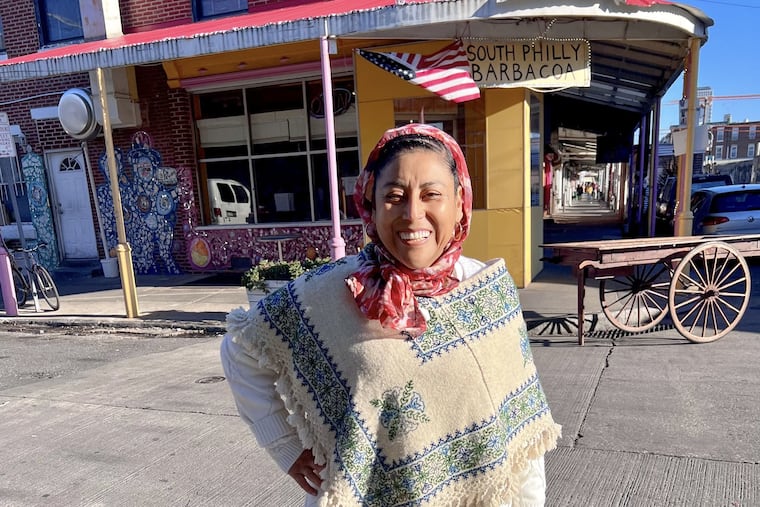Why South Philly Barbacoa’s Cristina Martínez is hosting lunch at the U.S.-Mexico border
Martínez, who came to the United States undocumented and hasn't seen her children in 15 years, hopes to change immigration laws.

It’s been 5,478 days since South Philly Barbacoa owner Cristina Martínez last hugged three of her children. Despite receiving national recognition for her cooking, no award has made it possible for the Mexican native, who came to the United States undocumented, to reunite with her family on the other side of the border without losing everything she has worked for in Philadelphia, the city she now calls home.
That’s why, on June 29, Martínez plans to hold a cross-border lunch at Friendship Park — located on the United States-Mexico border between the Tijuana and San Diego regions, and one of the few places in the world where occupants of the two countries can speak face-to-face.
The importance of Friendship Park is personal to Martínez, who came to the United States undocumented in 2009 looking for work to fund her daughter’s college tuition. She was previously caught by U.S. Border Patrol and fingerprinted. This “unlawful presence” on her record makes her ineligible for a green card — and unable to visit her children in Mexico without leaving her acclaimed restaurant and life in Philadelphia behind.
During the free cross-border lunch, held during National Immigrant Heritage Month, Martínez and four San Diego chefs will serve chicken and vegetarian platters. (Martínez said she will not serve her famous barbacoa due to logistical issues.)
For her, the event represents “a call for unity and solidarity, reminding us of the importance of compassion, empathy, and mutual aid.”
“In the kitchens, gardens, and harvests of this country, many immigrants, including myself, work tirelessly, in most cases in precarious working conditions and despite our love for this country, we have been deprived of embracing our loved ones,” Martínez said.
She hopes to move closer to collecting 50,000 digital signatures on a petition calling to have the space in Friendship Park for families to share time together, and in support of immigration legislation that could provide a path to legalization for undocumented immigrants, like herself. Martínez wish is to eventually present her petition to Congress.
Created in 1848, Friendship Park was meant to be a place where both nations could come together as a sign of allyship. Soon, it became the scene where thousands of families, separated by migration or deportation, could reunite.
After World War II, the park was divided with barbed wire, but families on either side could still embrace through the barrier.
Friendship Park, Martínez said, “gave us the opportunity to get together, but even that right has now been denied to us.”
Decades of changes in immigration policy continued to shrink the space for families to visit, turning the barbed wire into a fully-patrolled metal fence.
In 2009, the park closed for three years, and a secondary 20-foot-tall steel bar fence put an end to the possibility of hugging and seeing loved ones at the border.
Today, when allowed to access the area, families can merely touch each other’s fingertips.
Joining forces with 2PuntosPodcast, Friends of Friendship Park, Conexión Migrante, and Mexican-American activist Ada Trillo, Martínez hopes the cross-border luncheon will be the beginning of family reunification for undocumented immigrants.
“I am an immigrant, a chef, an advocate, why can’t I see my children?” Martínez asked. ”The only thing I have done since getting here is work to support this country as much as it has supported me.”